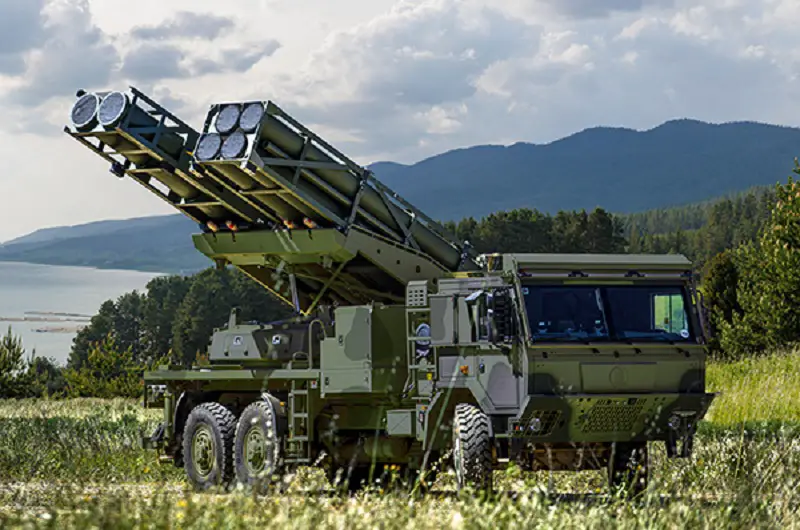The Spanish Army has committed over € 700 million to integrate the Elbit Systems’ PULS (Precise & Universal Launching System) rocket launchers into its arsenal. This significant investment marks a transformative step as a consortium of Spanish firms, led by Escribano Mechanical & Engineering and Rheinmetall Expal Munitions, collaborates to develop a Spanish Rocket Launcher based on the innovative PULS technology, known as SILAM (Sistema Lanzador of Alta Movilidad) in Spain. Scheduled for rollout in phases, the delivery plan encompasses a comprehensive package. In 2024, initial shipments of launchers and training rockets will commence, followed by live ammunition supply starting in 2025. The final batch of rockets is slated for deployment to the army by 2028. Alongside the twelve launchers, the procurement includes a range of support vehicles and systems, catering to diverse operational needs, such as command post vehicles, recovery vehicles, high mobility reconnaissance vehicles, munition vehicles with cranes, and a dedicated rocket launcher platform for ammunition testing and validation.

The decision marks a stark departure from the discontinuation of multiple rocket launchers, notably the Teruel s, which were phased out in 2011 without suitable replacements. The urgency of augmenting the Spanish Army’s striking potential prompted the government’s approval on October 10 for the procurement of long-range artillery systems. This substantial investment reflects the nation’s commitment to fortify its military capabilities. While the US-based Lockheed-Martin’s M142 HIMARS was considered, the Spanish unequivocally dismissed an “off-the-shelf purchase.” Pooling the expertise of companies such as Escribano, GMV, Expal (a subsidiary of German Rheinemetall), and Israel’s Elbit Systems, Spain aims to create its version of the PULS. PULS will be suitable for ammunition from European manufacturers in the future. Compared to the HIMARS system, it can carry more missiles. It is also possible to purchase more rockets with the budget and they are available earlier. This offers prospects for international cooperation in order to increase European autonomy.

The PULS (formerly known as Lynx multiple rocket launcher) is a multiple rocket launcher developed and manufactured by ELBIT Systems (formerly Israel Military Industries) and used by Israel Defense Forces and other countries. The multi-purpose launcher features two PODS; each POD is designed for a specific rocket type: the Accular 122mm (18 rockets) with a range of up to 35km, the Accular 160mm (10 rockets) with a range of up to 40km, the EXTRA (4 rockets) with a range of up to 150km and the Predator Hawk (2 rockets) with a range of up to 300km. With its unique design, the PULS can also support future growth capabilities such as the ability to launch loitering munitions, including the canister launched configuration of Elbit Systems’ SkyStriker loitering munition. The PULS is designed to maximize response with optimal firing flexibility, without the need for special modifications to the system. A typical firing mission can be executed in less than one minute from initiation.

Elbit Systems Land has decades of experience in the design, development and manufacture of a wide range of advanced, accurate and fast response artillery rocket and missile weapon systems. Elbit Systems has further expanded the PULS system’s capabilities, unveiling the Light PULS, a lightweight airborne version designed to cater to the operational demands of Special Forces in remote, high-risk areas. Transportable by aircraft like the C-130, this adaptation extends artillery support beyond traditional ranges, addressing the evolving needs of modern warfare scenarios. KMW and Elbit have established the concept “Euro-PULS” for the next generation European Long Range Rocket Artillery as the successor system for the MLRS. In January 2023 Denmark announced it is negotiating the acquisition of 8 PULS systems for the Royal Danish Army. In March 2023, the Dutch Ministry of Defence announced that it would acquire 20 PULS systems for the Royal Netherlands Army with the first systems to be delivered in the same year. The contract worth 305 million dollars was signed on May 18. The Defense Technology Institute (DTI) of Thailand is partnering with Elbit Systems to develop a Thai version of the PULS called D-11A.
















